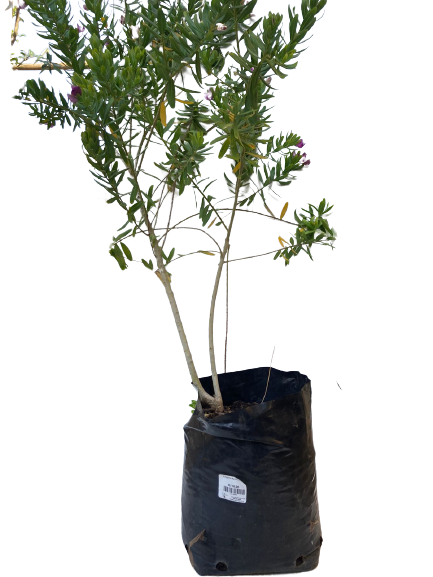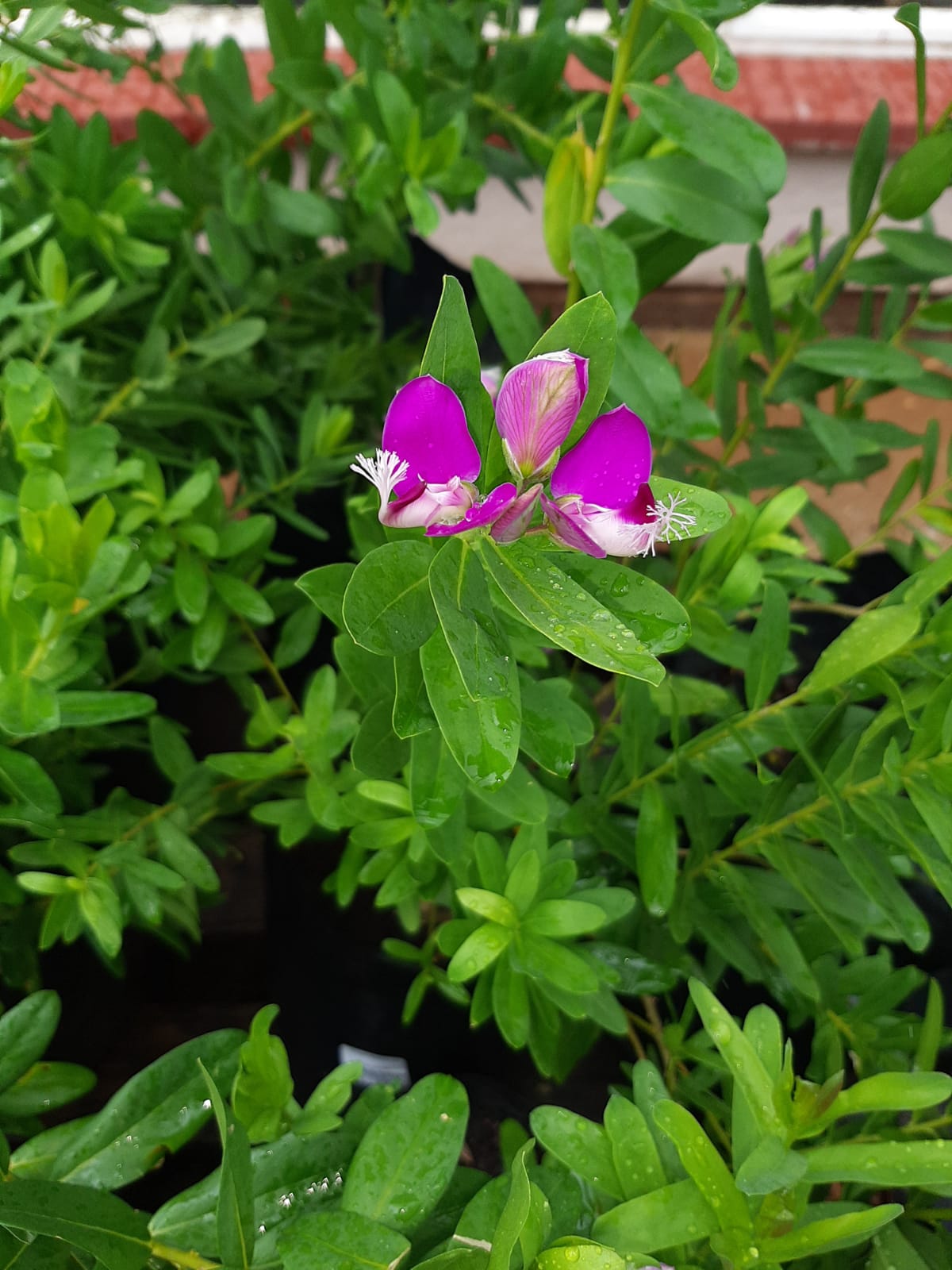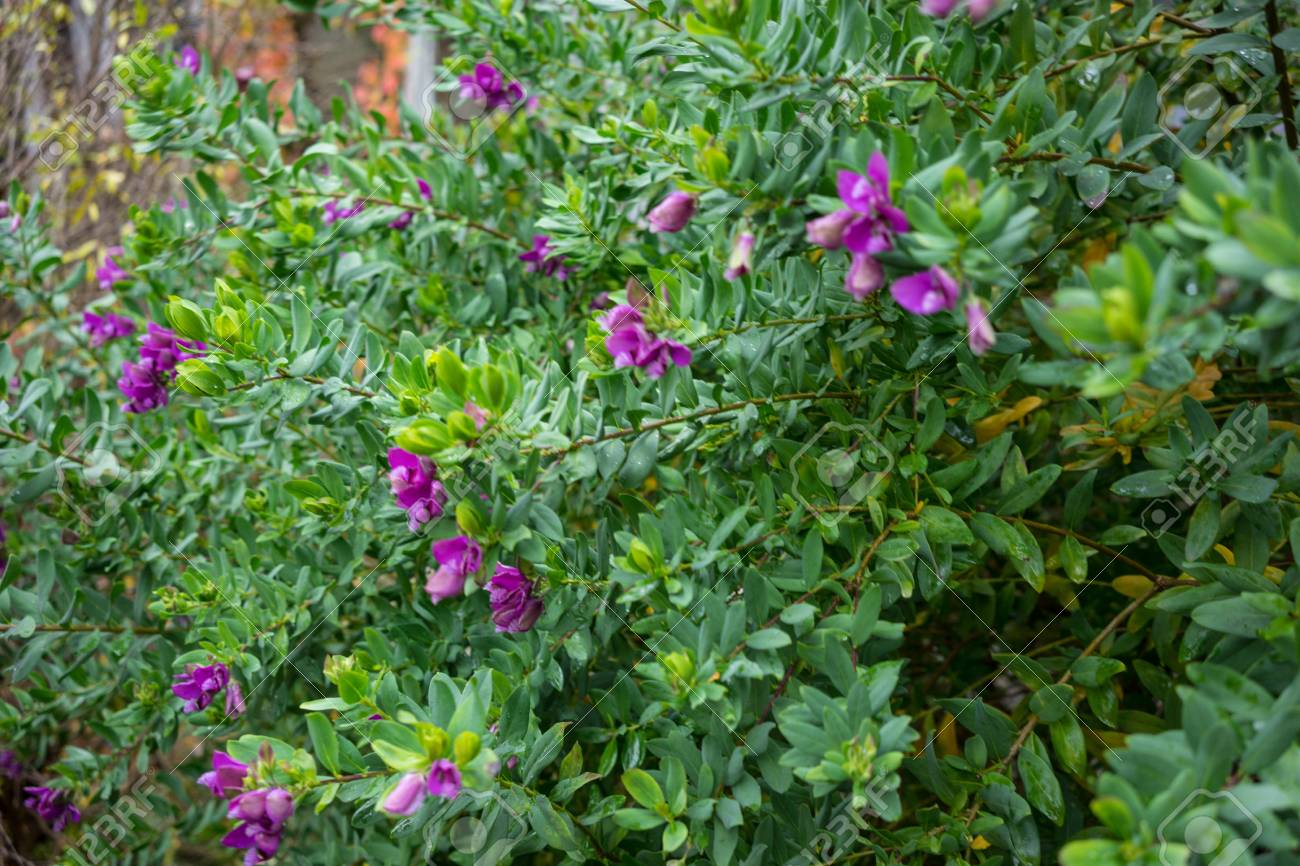Polygala Myrtifolia 10L
Polygala Myrtifolia 10L
Couldn't load pickup availability
The buds are green, flat, marked with dark veins and oval to half-moon-shaped. The lower buds open first. The flowers are carried in small clusters at the ends of short branches and look a bit like legume (pea or bean) flowers, but are actually quite different. Close inspection will reveal that although they have two wings and a keel, they lack the banner (also called standard) petal. All polygalas also have a showy, and very distinctive brush-like tuft on the keel. The showy petals, beautifully marked with darker veins, are usually in shades of mauve or purple, but can also be pink scarlet, or white. Polygala myrtifolia has blooms throughout the year with a peak in spring ( August to October) when the plants flower profusely. The fruit is a small, winged capsule.
Distribution and habitat
Polygala myrtifolia occurs naturally from the Bokkeveld Mountains near Clanwilliam in the Western Cape to Kwazulu-Natal. Along this wide distribution area changing from winter to summer rainfall, it is commonly found growing on dunes, rocky slopes, in forests, along streams, in scrub and open grassland.
Derivation of name and historical aspects
Polygala is an old Greek name from the words polys meaning much and gala meaning milk, the name given to this genus for some of its members which have the reputation for promoting the secretion of milk. The species name myrtifolia means myrtle-like leaves.
The milkwort family (Polygalaceae) occurs nearly world-wide with 17 genera and 950 species. Of the 400-450 African species, 32 occur in the Cape region. The genus Poygala consists of about 600 species with 232 species in Africa and Madagascar of which approximately 88 species occur in southern Africa. Other local species grown in gardens include Polygala fruticosa and Polygala virgata.
Uses
An interesting use for this polygala was recorded by Pappe , a German doctor and botanist who emigrated to the Cape in 1832. Pappe says that the Cape Malays scraped off the fresh grey bark, which they mixed with water and stirred until it frothed and then used this for washing their dead before burial. This custom dated back long before Pappe recorded it in 1860, but it is now long in disuse. Because of this use, the plant was known in the Cape as langelier or langelede, probably a corruption of the Afrikaans lange lede meaning long joints.
In KwaZulu-Natal Polygala myrtifolia is one of the many plants known for its antibacterial, antimicrobial and antifungal properties. Tests run by the University of Natal at Pietermaritzburg have found that aqueous extracts of P. myrtifolia showed activity against Candida albicans (which causes oral candidiasis).
Growing Polygala myrtifolia
Polygala myrtifolia is an attractive evergreen shrub able to adapt to most gardens and gardeners. A tough shrub suitable for coastal gardens, fynbos gardens, low maintenance and water-wise gardens. In the new garden it is excellent as a fast growing windbreak, hedge and colourful shrub able to grow in most soil types from full sun to semi-shade. Its growth is a bit more lax, producing fewer flowers in the shade, but it grows happily in the difficult pockets that change from full sun to semi-shade with the seasons.
Share






